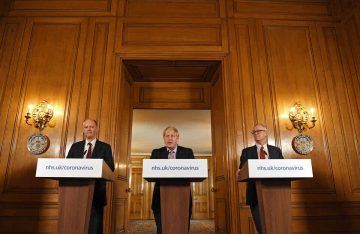 Jeremy Rossman in The Conversation:
Jeremy Rossman in The Conversation:
Our bodies fight infectious diseases through the actions of our immune systems. When we recover, we often retain an immunological memory of the disease that enables us to fight off that same disease in the future. This is how vaccines work, creating this immune memory without requiring getting sick with the disease.
If you have a new disease, such as COVID-19, that we don’t have a vaccine for and no one in the country has ever been infected with, the disease will spread through the population. But if enough people develop an immune memory, then the disease will stop spreading, even if some of the population is not immune. This is herd immunity, and it is a very effective way to protect the whole of a population against infectious disease.
But herd immunity is typically only viewed as a preventive strategy in vaccination programmes. If we don’t have a vaccine – as we don’t for COVID-19 – achieving herd immunity would require a significant proportion of the population to be infected and recover from COVID-19. So what would this mean for the spread of the disease in the UK?
More here.
